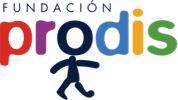Kolumba, accessible email for people with disability

Kolumba, accessible email for people with disability
Fundación Prodis, Universitat Pompeu Fabra, KU Leuven, Ariadna SL

Accessible email with basic functions that make it easy to use
Simplified email interface that operates on Gmail accounts and contains only four basic functions: new messages, inbox, sent messages, and contacts.
It also uses three basic functionalities that facilitate its use: SIMPLEXT, which simplifies complex texts and makes them easily understandable; TEXT2PICTO, which transforms texts into pictograms; and TEXT2SPEECH, which reads the text aloud. The interface is available in Spanish and English.
Characteristics of innovation
Localization
Madrid, Spain
Partners / Funders
European Commission and Ministry of Economy and Industry
Genesis
Many of the projects of the Fundación Prodis aim at the labor inclusion of people with disabilities. The Kolumba project is one of them, and it began 4 years ago with the participation of various European public and private organizations.
Level of implementation
By the end of 2017, the Kolumba system had 400 users, and in 2018 it received the award for Best Innovative Practice 2018 in the area of accessibility from Zero Project.

Banc d’innovacions






